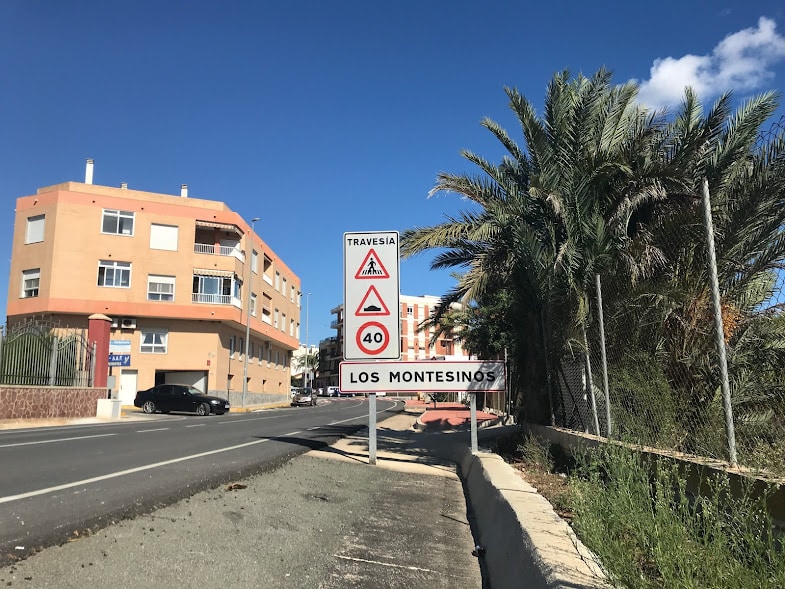The Civil Chamber of the Supreme Court has acquitted a lawyer who, after a hearing held in the Investigative Court number 2 of Torrevieja, offered statements to the media that the opposing party in the lawsuit considered “untruthful”, thus giving greater value to freedom of expression over the right to honour in this specific case.
The case in question came to court after, on February 3, 2015, the mayor of Los Montesinos, José Manuel Butrón, appeared under investigation for an alleged case of corruption. This happened after a complaint from an official, head of Urban Planning at the same Council, who accused him of “urban planning violations” and “bribery”, alleging that “an attempt was made to buy him so that he would not challenge the budget.”
After giving a statement, the politician’s lawyer made statements about the professional and civil servant career of the complainant, since journalists from different media were gathered in front of the Court. In them, the lawyer stated that “what has become clear, with my client’s permission, is that Mr. [name of the head of Urban Planning] has carried out exactly the same actions that he has done in this procedure in all the Councils in which he has been”.
Likewise, he continued by ensuring that “[the official] has coerced the corresponding mayor both in Alcalá de Xivert, and in San Juan, as well as in Formentera and Ibiza. He has asked for budget modifications without deserving them and salary increases without deserving them and when they have not been granted, he has filed a criminal complaint against all the mayors that he has encountered.
Finally, he clarified that “this has been confirmed in the proceedings with documents and with testimonies from the mayors that we have just mentioned and who, at the time, if necessary, will come to testify. But it seems to me that it is a completely false attitude on the part of the man [official] who has an activity bordering on slander, as will be demonstrated sooner or later.
Given this statement, the head of Urban Planning filed a lawsuit against the lawyer for illegitimate interference in his right to honour and professional esteem. In it, he requested that the defendant be ordered to compensate him with 25,000 euro, as well as that the full sentence be published in the same media in which the information was subsequently disseminated. All this because he considered that the statements made had spread “untrue facts that affected his reputation.”
Neither the Court of First Instance and Instruction number 3 of Ontinyent, nor the Seventh Section of the Provincial Court of Valencia agreed with the plaintiff, who, determined to have his violated right to honour recognised, filed a last appeal for cassation, as well as an extraordinary appeal for procedural violation.
On the one hand, it denounced the violation of the right to effective judicial protection, recognised in Article 24 of the Constitution, considering that the documentary evidence admitted had not been subject to any evaluation, and that it follows that the official “never “He provided his services in the municipalities indicated in the defendant’s statements, and therefore could not coerce their mayors.”
On the other hand, he denounced the violation of the fundamental right to honour, as well as the violation of articles 20.1 a) and 18.1 of the Constitution, and articles 2.1 and 7.7 of Organic Law 1/1982. He alleges that the ruling erred by not adequately evaluating the conflict between the right to honour and freedom of information, by not subjecting the defendant’s statements to a veracity test. Furthermore, he maintains that the ruling opposes the jurisprudence of the Supreme Court by not considering the public relevance of the matter or the absence of insulting or vexatious expressions.
In relation to the first appeal, the Supreme Court has considered that not all errors in the assessment of evidence are relevant for these purposes. It is required that it be a factual error, on the factual bases that support the decision, and that it be patent, manifest, evident or notorious, and verifiable in an incontrovertible manner based on judicial proceedings.
The court has also noted that the probative value of the documents does not necessarily imply a specific interpretation of their content. Furthermore, the judgment of the appeal court on the relative importance of the evidence and its evaluation is not necessarily shared by all the parties, but this does not make the review of the evaluation of the evidence carried out by the Court.
In relation to the other resources, the High Court has considered that freedom of expression and freedom of information are fundamental rights protected by the Constitution, but with significant differences between them. The first includes the issuance of judgments, beliefs and personal opinions, while the second covers the communication of objective facts. Both are limited by respect for personality rights, such as honour.
In this case, the lawsuit revolves around freedom of expression, since the lawyer’s statements were not intended to be informative, but rather to express an opinion about the behaviour of the complainant. The balance between freedom of expression and the right to honour requires that the demonstrations deal with issues of general interest, which is the case here.
The content of lawyers’ freedom of expression in court is particularly resistant to restrictions, except for the use of insulting terms or gratuitous disqualifications. The statements of the defendant lawyer were made in a context close to the exercise of the right of defence and before the media that covered the news. And although, according to the Supreme Court, some expressions were unnecessary, “none are insulting or vexatious,” but rather they expressed the lawyer’s perception of the complainant’s behaviour. Therefore, the lawsuit has been dismissed.





